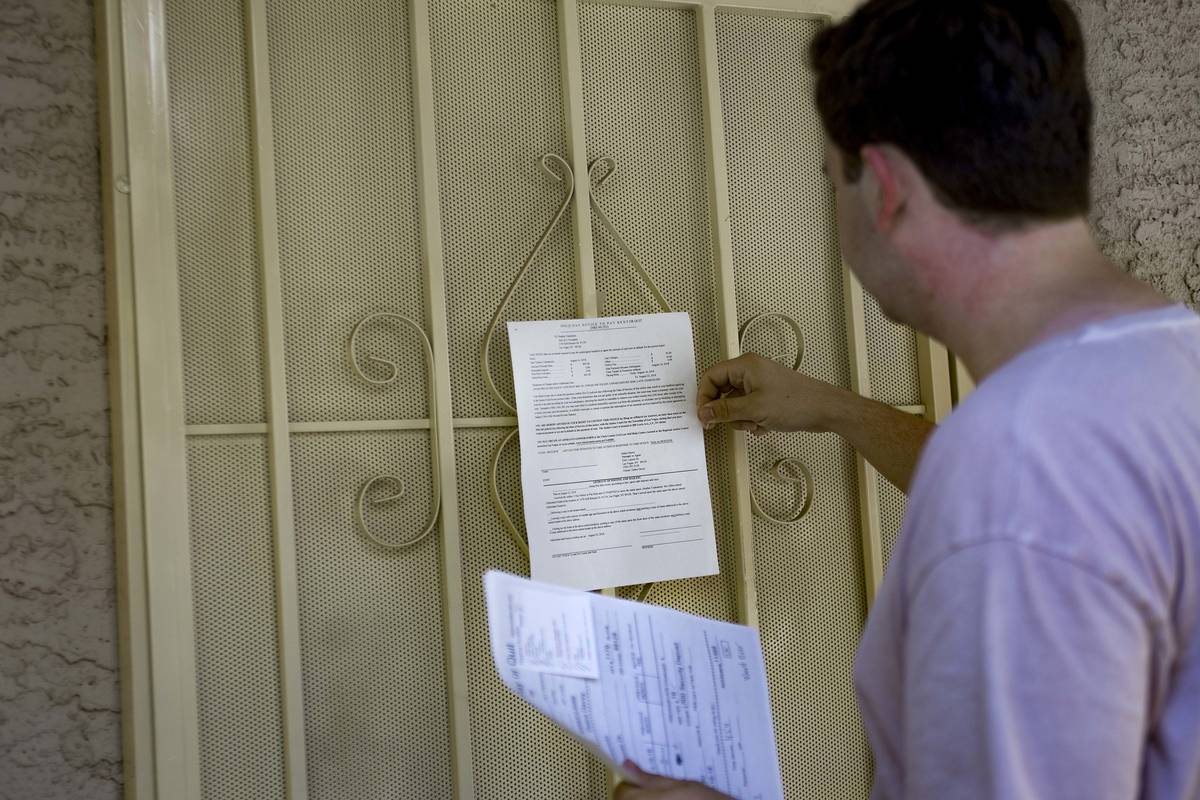CDC extends eviction moratorium
WASHINGTON — The Centers for Disease Control and Prevention extended through the end of June an eviction moratorium that was set to expire this week.
CDC Director Dr. Rochelle Walensky signed the extension, which expires June 30.
“The COVID-19 pandemic has presented a historic threat to the nation’s public health,” said Walensky in a statement released by the White House. “Keeping people in their homes and out of crowded or congregate settings — like homeless shelters — by preventing evictions is a key step to stop the spread of COVID-19.’’
Walensky extended the moratorium when it was set to expire in January. The latest extension to June is expected to help 12 million renters who are behind or unable to pay rent due to financial hardship.
The National Housing Law Project and the American Civil Liberties Union in a letter to Walensky on Feb. 8 urged an extension of the moratorium that has helped millions of tenants nationwide.
Both groups noted that evictions disproportionately impact Blacks and Latinos, according to analysis based on U.S. Census Bureau data. The Biden administration has estimated that roughly 10 million people are behind on rent due to lost employment and other financial hardship.
Nevada hard hit
The moratorium has helped families in Nevada and other states stay in their homes following the economic crisis created by the pandemic that left many without jobs and closed small businesses.
Las Vegas was one of the cities hardest hit by the pandemic, because of its reliance on the tourism and entertainment industries.
In December of 2020, unemployment in Nevada reached 9.2 percent, behind only Hawaii, according to the National Bureau of Labor Statistics.
Although many hotels, casinos, restaurants and venues are reopening in Nevada, the state is still reeling from the economic downturn caused by the pandemic.
More than $46 billion in rental assistance has been provided in bills passed by Congress to address the needs of people who lost work during the pandemic and fell behind on payments.
In addition, states and cities will receive $350 billion in federal aid with flexible rules that will allow local governments to help those in need.
In Clark County, about $161 million is available to help roughly 40,000 people who need rental assistance, according to officials.
The recently passed COVID-19 rescue package did not include an eviction moratorium extension provision in order to pass the legislation through the Senate under budget rules that required a simple majority vote.
The rescue package passed Congress with little Republican support, and Democrats urged the Biden administration to extend the eviction moratorium.
Those eligible for rental assistance distributed through states and local governments must earn less than $90,000, and pledge a good-faith effort to pay back the funds.
Help for landlords
Landlords, too, are eligible to seek assistance.
Realty and landlord associations have argued that the eviction moratorium places a huge burden on those with rental properties, particularly small mom and pop operations that rent just a few properties and rely on the income to pay off mortgages.
The Department of Housing and Urban Development also will implement programs to ensure stability of renters and rental properties.
Other federal agencies, including the Treasury and Agriculture departments, the Consumer Financial Protection Bureau and the Federal Trade Commission are working to get tenants and landlords “the assistance they need during the public health crisis,” according to a White House statement.
A federal court in Texas in February sided with landlords and ruled that the eviction moratorium was unconstitutional. The Justice Department is appealing the ruling.
Under the moratorium, a landlord can be fined up to $100,000 for a violation.
A management company can be fined up to $200,000 per eviction.
Contact Gary Martin at gmartin@reviewjournal.com. Follow @garymartindc on Twitter.











































